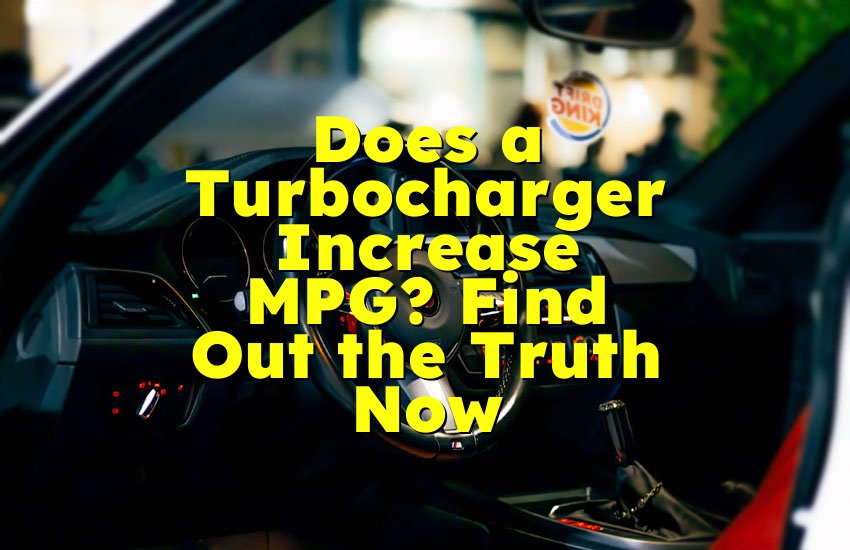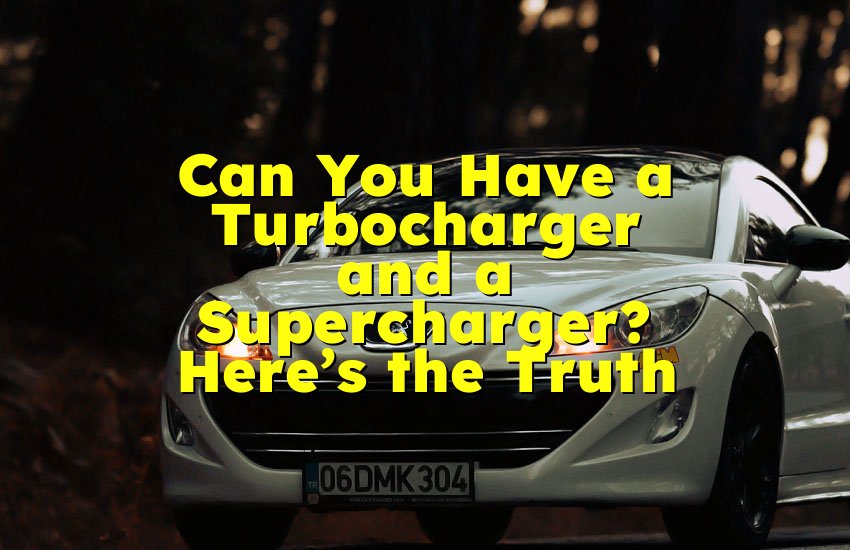As an Amazon Associate, I earn from qualifying purchases at no extra cost to you.
Fuel Pump Works But Car Won’t Start: Common Causes and Fixes
Have you ever faced the frustrating situation where your car's fuel pump seems to be working fine, but the car just won’t start? It's confusing, right? You might think everything is in order, but for some reason, the engine refuses to turn over. This issue could be due to a range of factors, and understanding them can help you troubleshoot and hopefully solve the problem without a mechanic's help. In this article, we'll explore all the possible causes and solutions in simple terms.
Understanding the Role of the Fuel Pump
What Is a Fuel Pump and Why Is It Important?
To kick things off, let’s first make sure we're clear about what the fuel pump does. The fuel pump is a crucial part of your car’s fuel delivery system. It draws fuel from the tank and sends it to the engine so that the car can run. Without a functioning fuel pump, your engine will not get the fuel it needs to start and operate. Even though you might hear the fuel pump running, it doesn't necessarily mean everything is working perfectly.
Signs That Your Fuel Pump Might Be Failing
Even though the fuel pump might appear to be working, it can still be failing or not working at full capacity. Some common signs of a failing fuel pump include:
- Difficulty starting the car
- Loss of engine power or stalling
- A whining sound coming from the fuel tank
- Sudden drops in fuel pressure
How Fuel Pumps Work
A typical fuel pump works by pushing fuel from your tank to the engine through a series of pipes and filters. It works with other components like the fuel pressure regulator and injectors. The fuel pump is usually an electric type in modern cars, which gets power from the car's battery. Some cars even have multiple fuel pumps, especially high-performance models.
Why the Car Won't Start Even with a Working Fuel Pump
Now, you may wonder, “If the fuel pump is working, why isn't my car starting?” Well, the truth is that a working fuel pump doesn't guarantee the car will start. There can be other issues in the fuel delivery system or with the engine itself that are preventing the car from starting. Let's explore those in the next sections.
Common Reasons for a Car Not Starting Despite a Working Fuel Pump
Fuel Delivery Issues
Even if your fuel pump seems to be working, there could be a problem with the fuel delivery to the engine. A clogged fuel filter, for example, can block the fuel from reaching the engine, leading to starting problems. Fuel lines could also get clogged or damaged, which would restrict fuel flow.
If the fuel doesn't reach the engine in the right amounts, you'll see symptoms like sputtering when trying to start the car or no start at all.
Ignition System Problems
Another reason why your car may not start is a malfunction in the ignition system. The ignition system includes parts like spark plugs, the ignition coil, and the starter motor. If any of these components aren't working right, the engine won't start, even if the fuel pump is working perfectly. Sometimes, the fuel pump may be sending fuel to the engine, but the ignition system isn't delivering the spark needed for combustion.
Bad Fuses or Relays
Cars rely on various electrical components, and sometimes the issue might be electrical, even if the fuel pump seems to be running. A bad fuse or a faulty relay that controls the fuel pump can cause a car to fail to start. These are often easy to fix, but you need to identify the problem first.
Faulty Crankshaft or Camshaft Position Sensors
Your car's computer relies on sensors like the crankshaft position sensor and camshaft position sensor to monitor the engine’s rotation. If these sensors are damaged or not working correctly, the engine's control unit won't be able to start the engine, even if everything else seems fine. If the car cranks but doesn't start, it could be due to a bad sensor.
Low Battery Voltage
A low or weak car battery can sometimes prevent the car from starting, even if the fuel pump is running. The fuel pump needs electrical power to operate, and so does the ignition system. If your battery is weak, there may not be enough power to properly turn the engine over and ignite the fuel.
Fuel Pump Relay Problems
The fuel pump relay controls the power that goes to the fuel pump. If this relay fails or becomes faulty, the fuel pump may run intermittently, leading to issues with starting the car. Even if you hear the pump run for a few seconds, it might not be delivering enough fuel to the engine.
Steps to Diagnose and Fix a Fuel Pump Issue
Step 1: Check the Fuel Pump Fuse and Relay
Before jumping to conclusions, the first thing you should check is the fuel pump fuse and relay. If either of these is blown or malfunctioning, your fuel pump won't be able to operate properly. To check the fuse, locate your car's fuse box (usually under the dashboard or in the engine compartment). If you find a blown fuse, replace it and see if the car starts.
Likewise, check the relay and replace it if necessary. You can usually find a replacement relay at an auto parts store.
Step 2: Test the Fuel Pressure
One of the best ways to determine if your fuel pump is working correctly is to test the fuel pressure. This can be done with a fuel pressure gauge, which is available at most auto parts stores. The fuel pressure gauge connects to the fuel line and gives you a reading of the fuel pressure. If the pressure is too low, it could indicate a problem with the fuel pump.
Step 3: Inspect the Fuel Filter and Fuel Lines
If the fuel pump is working, but the car still won't start, the next thing you should inspect is the fuel filter and fuel lines. Over time, fuel filters can become clogged, preventing fuel from reaching the engine. You can replace the fuel filter yourself if you’re comfortable with it, or take your car to a mechanic for this service.
Also, check the fuel lines for any cracks, leaks, or damage. Even a small hole can prevent fuel from flowing properly.
Step 4: Test the Ignition System
As mentioned earlier, if the ignition system is faulty, the engine won't start, even with a working fuel pump. Check the spark plugs and ignition coils to ensure they are working correctly. If the spark plugs are worn out or dirty, replace them. If the ignition coil is faulty, it will need to be replaced as well.
Step 5: Check the Crankshaft and Camshaft Position Sensors
Next, check the crankshaft and camshaft position sensors. These sensors tell the car's computer where the engine is in its rotation cycle. If one of these sensors is damaged, it can cause the engine to not start, even if the fuel pump is working. If you’re not sure how to test these sensors, a mechanic can do it for you.
Step 6: Check for Battery Power
Lastly, don't forget about the car's battery. If your battery is weak or dead, it might not have enough power to start the car, even though the fuel pump and ignition system are working. Try jump-starting the car with jumper cables, and if that works, you may need to replace the battery soon.
I hope this article has helped you better understand why your car might not start even though the fuel pump seems to be working fine. By going through the potential issues with the fuel system, ignition system, and electrical components, you can start troubleshooting on your own. Of course, if you’re not comfortable with car repairs, don’t hesitate to seek professional help.
Frequently Asked Questions (FAQs)
Is it possible for the fuel pump to work but still not start the car?
Yes, it's possible for the fuel pump to be functioning but not supply enough fuel or have issues with fuel delivery. Problems with fuel lines, filters, or electrical connections can still prevent proper fuel flow to the engine.
Can a faulty ignition coil cause the car to not start?
Yes, a bad ignition coil can cause your car not to start. The ignition coil is responsible for providing the spark needed to ignite the fuel, and if it malfunctions, the engine won't start.
Do I need to replace the fuel pump if my car won't start?
Not necessarily. Before replacing the fuel pump, it's important to diagnose whether other issues are causing the problem, such as a faulty fuse, fuel filter, or ignition system. A fuel pump is expensive, so only replace it if necessary.
Is it safe to drive with a failing fuel pump?
It's not safe to drive with a failing fuel pump. If the fuel pump is failing, your engine could stall or lose power unexpectedly, putting you at risk of a breakdown or accident. It's better to address the issue as soon as possible.
Can a bad fuel filter prevent the car from starting?
Yes, a clogged or bad fuel filter can prevent fuel from reaching the engine, causing the car not to start. It's a relatively simple part to replace and can often solve the issue.
Is it expensive to fix a faulty fuel pump?
Fuel pump replacement can be costly, typically ranging from $300 to $1,000 or more, depending on the make and model of the car. However, the cost may vary, so it's always best to get a quote from a mechanic.
Do I need to replace the fuel pump relay if the car won't start?
If the fuel pump relay is faulty, it can prevent the fuel pump from working properly. In that case, replacing the relay may solve the issue. It's an affordable and easy fix.
Is it possible to fix a bad fuel pump myself?
Replacing a fuel pump is a complex task that requires technical skills, tools, and knowledge of your vehicle. Unless you're experienced with car repairs, it's usually better to have a mechanic replace the fuel pump for you.











